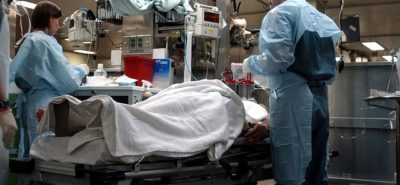Any time a person goes into the hospital for a surgical procedure, there is some level of risk. Illinois residents may believe these risks will be addressed and minimized by surgeons and hospital staff. However, the Joint Commission Center for Transforming Healthcare reports that wrong-site surgeries occur at least 40 times a week in the United States. This type of mistake involves a procedure done on the wrong side of the body or the wrong body part. Errors also include surgeries performed on the wrong patient, or on the wrong level of the correct anatomic site.
A medical malpractice attorney Chicago knows that this type of mistake can be devastating to the patient, and at times can even be fatal.
Common causes of surgical mistakes
Wrong-site surgeries may be the result of one of many frequent medical errors. Over 70 percent of those reported to the Joint Commission occurred due to communication problems. These included the following:
- Failure to include the patient or family members in the identification of the correct site
- Lack of communication between members of the surgical team
- Failure to understand correct information, including language barriers
- Changes or corrections not communicated to the whole team
Switching surgeons can also raise the risk of surgical mistakes. A medical malpractice attorney in Chicago may note that patients’ names or records can become confused, leading to the wrong person undergoing an operation. The x-ray results can be read backward, or the markings indicating the proper location for incisions can be accidentally removed when the site is prepped.
Safety protocols in place
A Universal Protocol has been set up and promoted by professional health care organizations. Checklists, safety procedures and greater communication requirements are intended to drastically reduce hospital mistakes. Unfortunately, these efforts have not produced significant success, and wrong-site surgeries still occur. Most medical professionals believe that the Universal Protocol is an effective tool, but institutions are not implementing it.
According to an article published in ProPublica, problems often occur due to the culture of an institution. All front line staff, regardless of rank, should be empowered to say something when a safety lapse is identified. This is often difficult in a health care system that attributes too much weight to doctors’ authority.
Wrong-site surgery can be devastating. Illinois has a statute of limitations that prevents the filing of lawsuits after a certain amount of time has passed. Victims may want to seek the legal advice of a medical malpractice attorney in Chicago to discuss the possibility of receiving compensation for pain and suffering caused by this type of adverse event.

